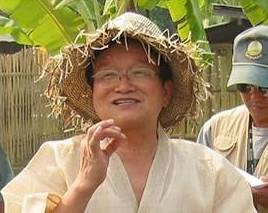Natural farming refers to an ecological farming approach that is environmentally friendly, with respect for life and nature. Principally, it minimizes human labor and includes an avoidance of manufactured inputs and equipment.
Natural farming systems are universal, having been practiced since mankind first began growing food crops.
The Iroquois — native Americans of the northeastern US — used a well-conceived “three sisters system” by interplanting beans, corn and squash together in the same mound. The different plants benefit each other: the corn provides support for the climbing beans, the beans supply nitrogen for the corn and the squash ground cover conserves soil moisture and suppresses weed competition.
Every country has its own form of natural farming. Each has a person or persons responsible for its promotion.
Masanobu Fukuoka of Japan is one of the best known, with his “do nothing” farming. He identified four principles of natural farming: no cultivation, no chemical fertilizer, no pesticides and no weeding. Weeds should be controlled, not eliminated.
 Master Cho Han Kyu of Korea currently is leading the way in promoting natural farming. He has spent his life developing and teaching these principles around the world.
Master Cho Han Kyu of Korea currently is leading the way in promoting natural farming. He has spent his life developing and teaching these principles around the world.
Kyu’s system, also known as Korean Natural Farming, is different from organic farming in that it does not just eliminate chemicals — it is a complete farming system. It also differs from Fukuoka’s nonintensive practices in that it employs elaborate, complicated and precise methods for crop and livestock production.
Kyu uses all-natural tonics and supplements as inputs. These inputs are used to follow the nutritive cycle theory all the way to crop maturity, using different inputs at each stage of plant growth. The result is stronger plants with higher yields in a chemical-free environment.
via Tropical Gardening: Earth-friendly farming the natural way | Hawaii Tribune-Herald.
